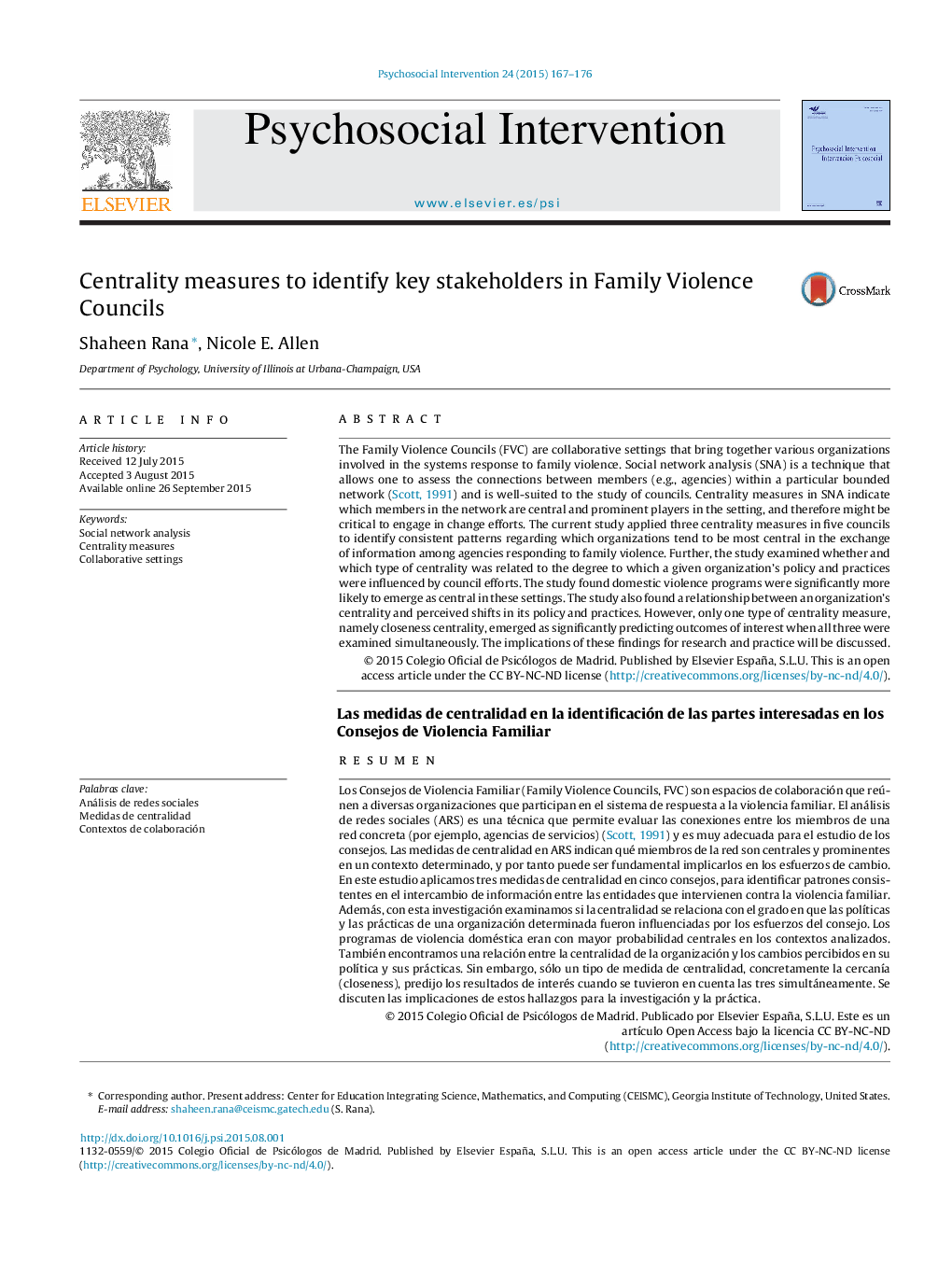| کد مقاله | کد نشریه | سال انتشار | مقاله انگلیسی | نسخه تمام متن |
|---|---|---|---|---|
| 895102 | 914604 | 2015 | 10 صفحه PDF | دانلود رایگان |
The Family Violence Councils (FVC) are collaborative settings that bring together various organizations involved in the systems response to family violence. Social network analysis (SNA) is a technique that allows one to assess the connections between members (e.g., agencies) within a particular bounded network (Scott, 1991) and is well-suited to the study of councils. Centrality measures in SNA indicate which members in the network are central and prominent players in the setting, and therefore might be critical to engage in change efforts. The current study applied three centrality measures in five councils to identify consistent patterns regarding which organizations tend to be most central in the exchange of information among agencies responding to family violence. Further, the study examined whether and which type of centrality was related to the degree to which a given organization's policy and practices were influenced by council efforts. The study found domestic violence programs were significantly more likely to emerge as central in these settings. The study also found a relationship between an organization's centrality and perceived shifts in its policy and practices. However, only one type of centrality measure, namely closeness centrality, emerged as significantly predicting outcomes of interest when all three were examined simultaneously. The implications of these findings for research and practice will be discussed.
ResumenLos Consejos de Violencia Familiar (Family Violence Councils, FVC) son espacios de colaboración que reúnen a diversas organizaciones que participan en el sistema de respuesta a la violencia familiar. El análisis de redes sociales (ARS) es una técnica que permite evaluar las conexiones entre los miembros de una red concreta (por ejemplo, agencias de servicios) (Scott, 1991) y es muy adecuada para el estudio de los consejos. Las medidas de centralidad en ARS indican qué miembros de la red son centrales y prominentes en un contexto determinado, y por tanto puede ser fundamental implicarlos en los esfuerzos de cambio. En este estudio aplicamos tres medidas de centralidad en cinco consejos, para identificar patrones consistentes en el intercambio de información entre las entidades que intervienen contra la violencia familiar. Además, con esta investigación examinamos si la centralidad se relaciona con el grado en que las políticas y las prácticas de una organización determinada fueron influenciadas por los esfuerzos del consejo. Los programas de violencia doméstica eran con mayor probabilidad centrales en los contextos analizados. También encontramos una relación entre la centralidad de la organización y los cambios percibidos en su política y sus prácticas. Sin embargo, sólo un tipo de medida de centralidad, concretamente la cercanía (closeness), predijo los resultados de interés cuando se tuvieron en cuenta las tres simultáneamente. Se discuten las implicaciones de estos hallazgos para la investigación y la práctica.
Journal: Psychosocial Intervention - Volume 24, Issue 3, December 2015, Pages 167–176
